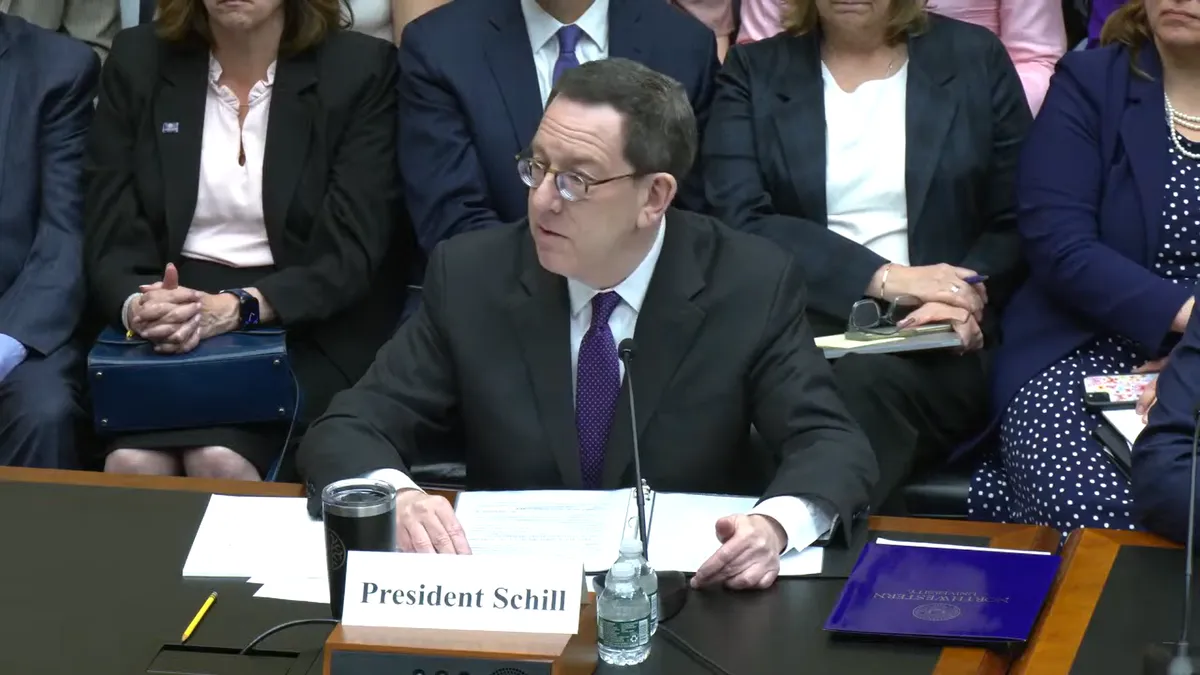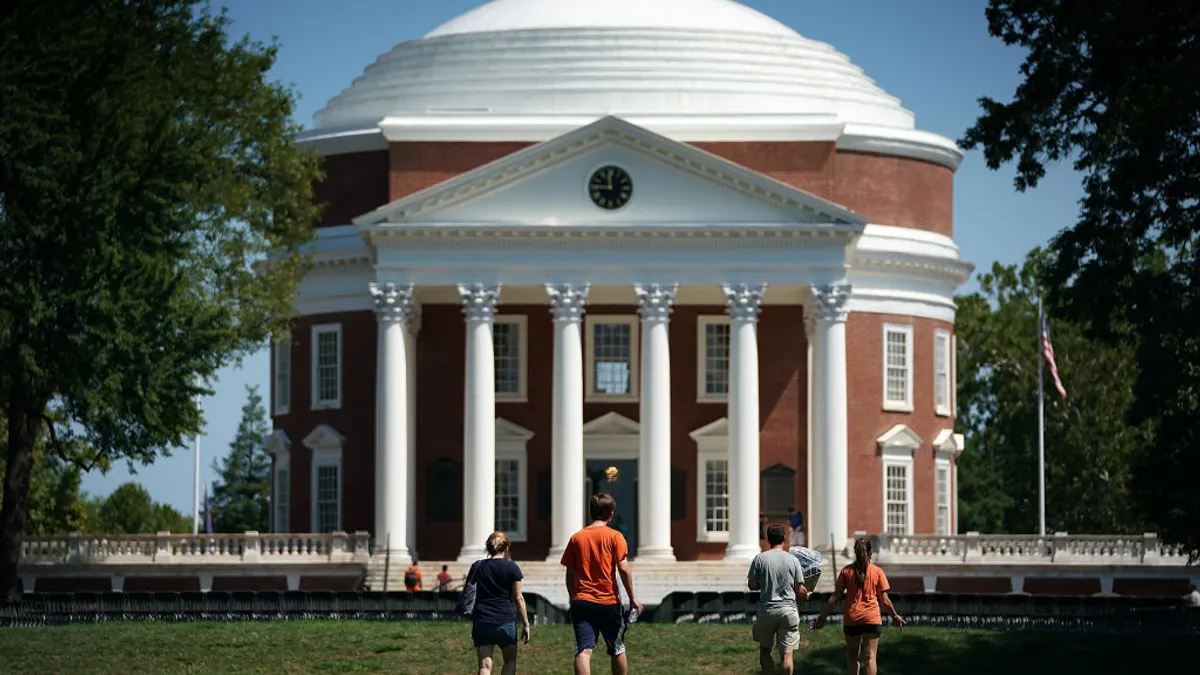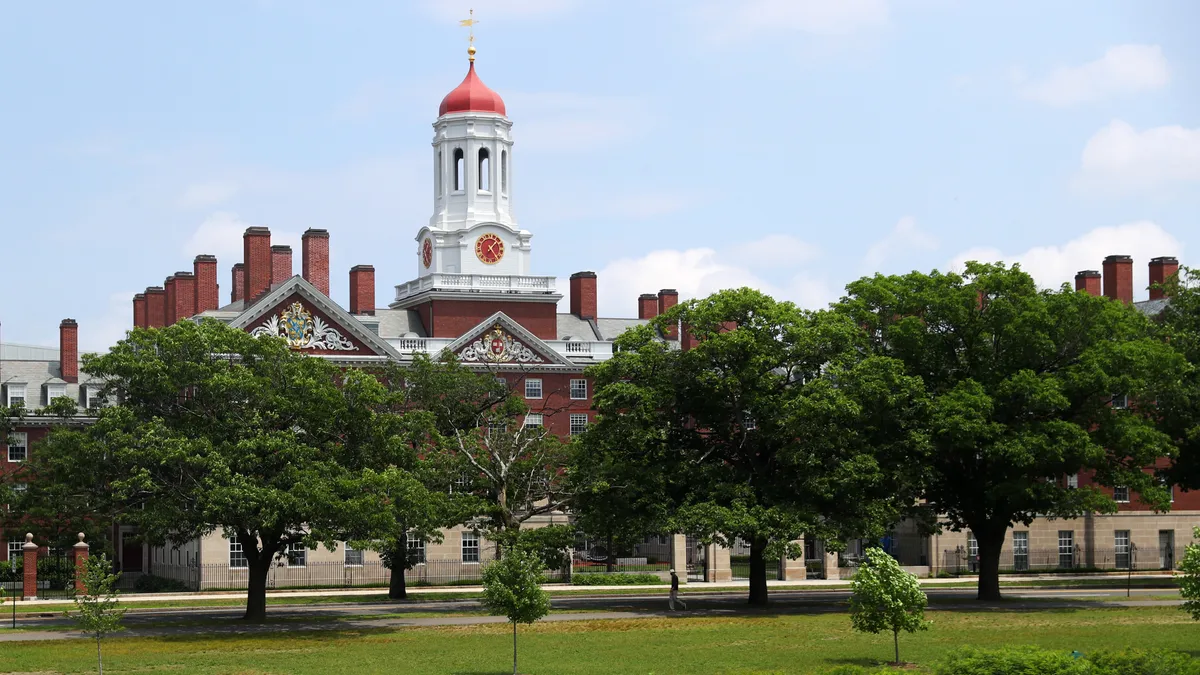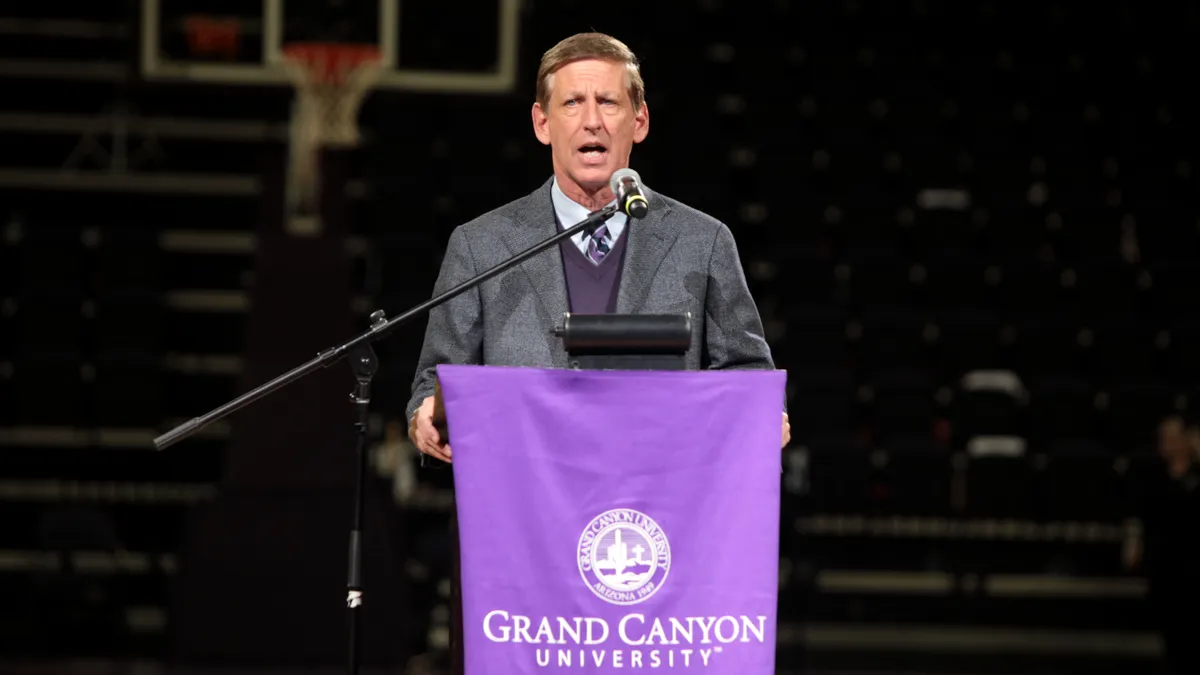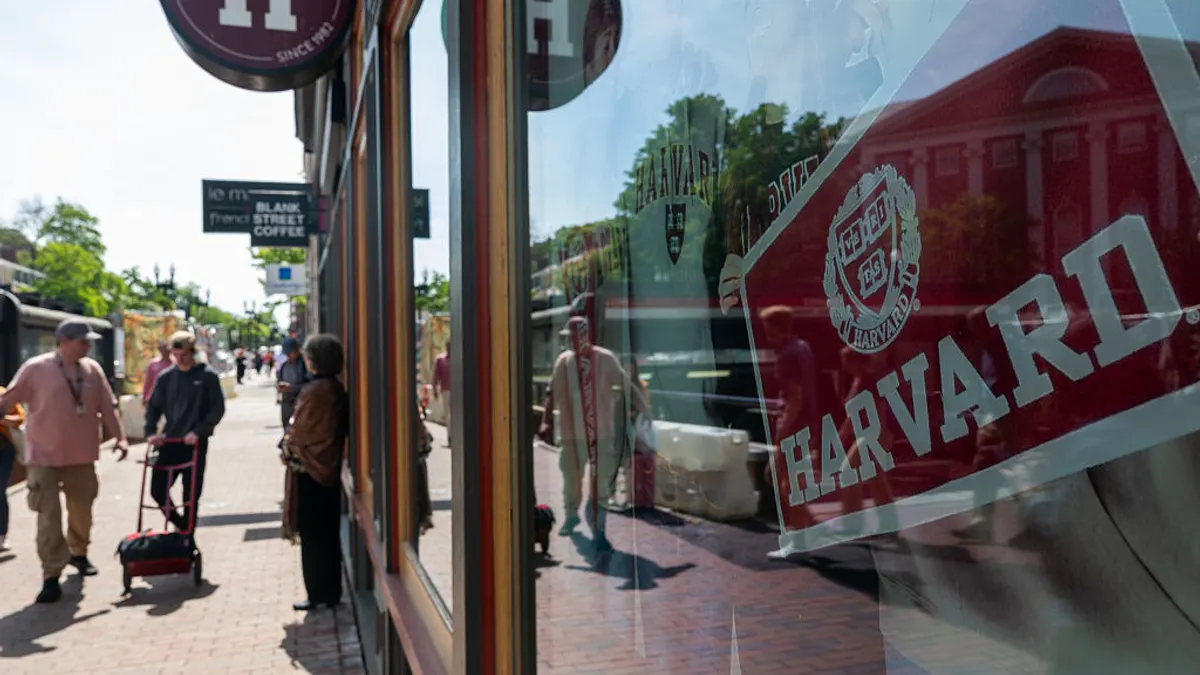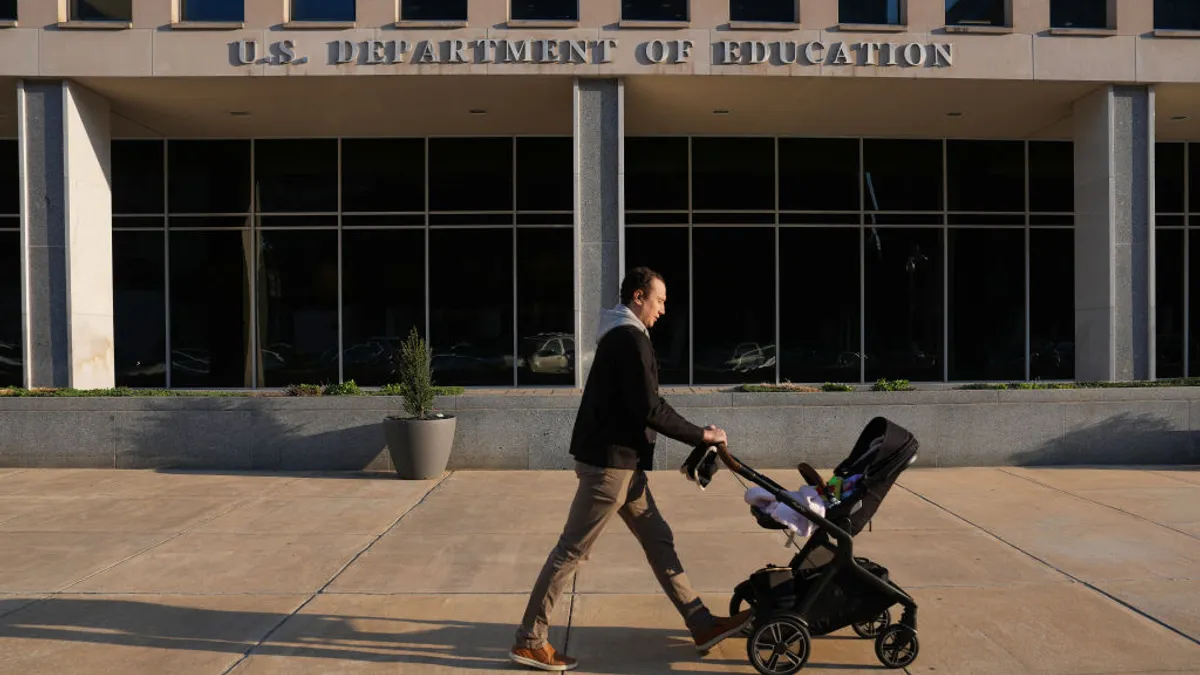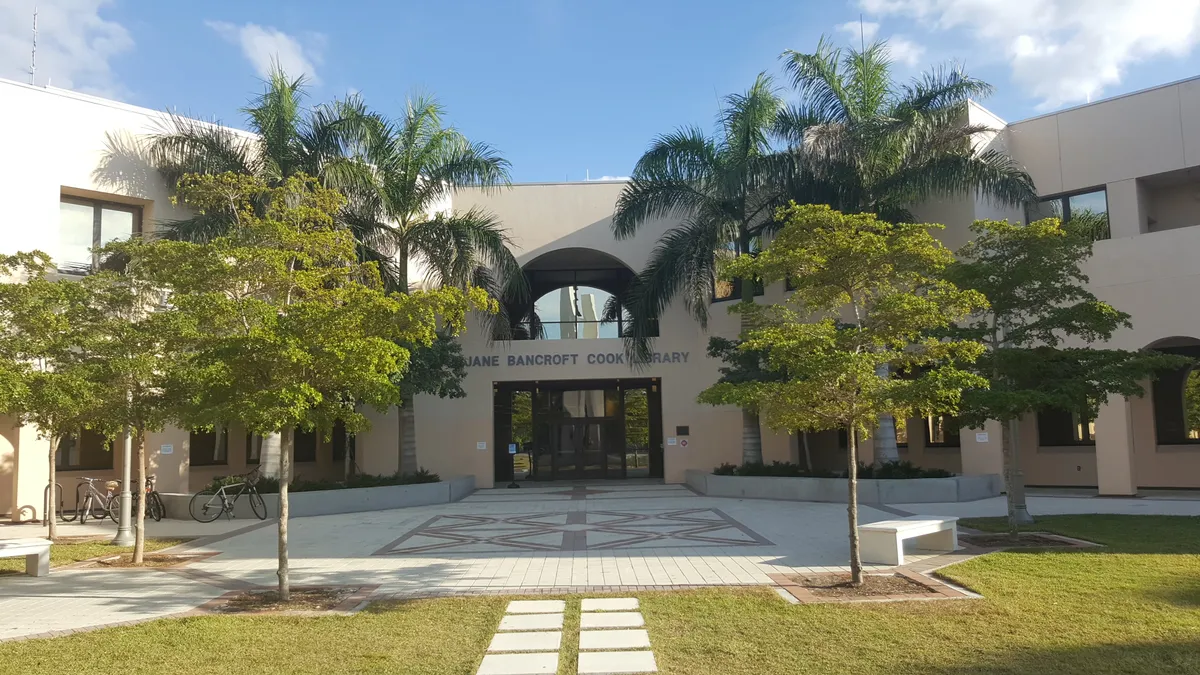House Republicans grilled the leaders of Rutgers University, Northwestern University and the University of California, Los Angeles on Thursday, panning their responses to the pro-Palestinian encampments that have cropped up on campuses nationwide.
The hearing, held by the House Committee on Education and the Workforce, marks the third time the panel has called top college leaders to testify about how they’ve handled campus unrest in the wake of the latest Israel-Hamas war. The committee has also brought in K-12 leaders to face similar lines of questioning, as well as heard from Jewish college students about their experiences facing antisemitism on campus.
During Thursday’s inquiry, the higher education leaders stressed that they must protect free speech and the right to protest while ensuring that those actions don’t cross the line into harassment or violence.
Other college presidents who have testified before the committee have stressed similar points, only to face widespread criticism afterward.
Former University of Pennsylvania President Liz Magill, who testified before lawmakers in December, resigned a few days after going to Washington, D.C. Claudine Gay, then-president of Harvard University, stepped down from her post in January amid mounting plagiarism allegations and anger over her responses to lawmakers.
However, some Democrats on the committee argued Thursday that the hearings failed to do anything to address the root issues of campus tension.
“Here we are for the fifth time in six months holding another hearing to complain about the problem of antisemitism, but no work is being done to find a meaningful solution to address the animus on college campuses,” Virginia Rep. Bobby Scott, the top Democrat on the committee, said. “Complaining about a problem is not a solution — it certainly riles people up, generates a lot of media coverage, but it doesn’t solve anything.”
Scott also pointed out that House Republicans last year attempted — and failed — to slash funding by 25% for the U.S. Department of Education’s Office for Civil Rights, which investigates whether colleges are protecting students from discrimination.
That would have equated to a $35 million budget cut for the office — which received a record number of complaints in 2023.
Rep. Haley Stevens, a Democrat from Michigan, didn’t mince words, arguing that lawmakers have only been performatively caring about protecting students equally.
“When we don’t put our money where our mouth is,” Stevens said, “we are failing this nation. We are failing Muslim students, we are failing Jewish students, we are failing Christian students, and frankly, we are failing the future of this country.”
Lawmakers grill Northwestern and Rutgers leaders
Republican lawmakers spent much of their time questioning the leaders of Northwestern and Rutgers, both of which struck deals with pro-Palestinian protesters to end encampments on their campuses.
At Northwestern, campus officials announced an agreement in late April following five days of negotiations with the student activists. The protesters agreed to remove their encampment — save for one aid tent — and comply with the university’s rules for demonstrations.
In exchange, Northwestern agreed to several steps, including providing information about its investments, funding two visiting Palestinian faculty members annually for two years, and covering the cost of attendance for five Palestinian undergraduates.
Northwestern did not agree to two of the protesters’ key demands — to divest from companies with ties to Israel and to end a program “focused on Israeli innovation,” according to Northwestern President Michael Schill’s written testimony.
North Carolina Rep. Virginia Foxx, the Republican chair of the committee, described the agreement as “a disgraceful deal.”
Foxx, along with other Republicans, also pointed out that seven members of a Northwestern advisory committee focused on preventing antisemitism and hate stepped down after the agreement was announced.
Those members took issue with Schill’s decision not to consult with the committee on the deal, according to The Daily Northwestern, the campus’ student newspaper.
However, Schill defended his decision to negotiate with protesters during the hearing, arguing that it helped de-escalate tensions on campus and remove an encampment that was making Jewish students feel unsafe. Campus officials had considered bringing in police but ultimately concluded that it would risk the safety of both students and officers, he said.
“The tents came down right after the agreement was struck,” Schill said. “The entire protest is now in conformity with university rules.”
Rutgers University President Jonathan Holloway offered a similar defense for his institution’s deal with student activists. He told lawmakers that he and other campus officials decided to negotiate with student activists when it came to light they planned to disrupt exams.
“We made a choice,” Holloway said. “That choice was to engage our students through dialogue as a first option instead of police action.”
Rutgers officials refused to break ties with Tel Aviv University or divest from Israeli companies, though they agreed to meet with student representatives over the latter demand. They also met many of the protesters’ other demands.
The university promised not to retaliate against students and employees involved in the encampment and committed support for 10 displaced Palestinian students to attend Rutgers. The university will also develop employee training sessions on anti-Palestinian, anti-Arab and Anti-Muslim discrimination.
During the hearing, Holloway also said the university has partnered with the Anti-Defamation League for planned training and discussion on antisemitism.
Rep. Lloyd Smucker, a Republican from Pennsylvania, described the deal as giving into the “demands of the mob.”
“I was not negotiating with the mob but talking with students,” Holloway said in response.
UCLA chancellor takes heat
UCLA Chancellor Gene Block did not escape the heat from lawmakers. Unlike Northwestern and Rutgers, UCLA didn't strike a deal with protesters and instead brought in police to dismantle a pro-Palestinian encampment on April 30. The raid resulted in over 200 people being arrested.
That night, violence erupted after counterprotesters attempted to remove the encampment’s barrier, according to a New York Times investigation. Police showed up hours later, they they didn’t immediately step in despite ongoing violence.
Foxx accused Block of doing “too little, too late.” She and other Republican lawmakers pointed to some protesters obstructing access to areas on campus before police were brought in.
Rep. Ilhan Omar, a Democrat from Minnesota, also panned Block’s response to the rising tensions in the encampment, though she focused on the lack of response to disruptive counterprotesters.
“Law enforcement stood by for hours as the mob of agitators gathered near the encampment with a clear intention to cause violence," Omar said.
Block said the Los Angeles Police Department is still working to identify the assailants that evening. But campus tensions don’t appear to be abating — police arrived at UCLA’s campus Thursday in response to a new encampment erected earlier in the day.


